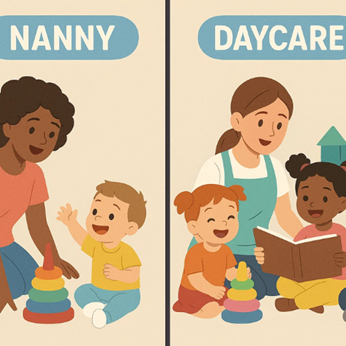5 Common Myths And Realities About Alzheimer’s Disease
With the number of elders suffering from Alzheimer’s disease increasing, with equally increasing myths about the development of this disease, it is very important that the family members and caregivers of those affected know what is true and what is not and then take steps to recognize the signs of this irreversible disease in their loved ones. I will be dealing with some myths and realities of this disease that would help family caregivers.
5 common myths and realities about Alzheimer’s disease:
Myth 1: Alzheimer’s disease can be prevented with a healthy lifestyle.
Reality: Some of the commonly suggested preventive measures are maintaining a healthy diet, exercising regularly, staying socially active and keeping the mind engaged with activities, however there is no evidence to support this claim, though they could however improve the quality of life of the elder. Again there are some that believe that the use of dietary supplements could protect the brain from Alzheimer’s disease; this has not yet been proved by research. Family caregivers should keep this in mind before adding dietary supplements to their loved one’s daily routine.
Myth 2: Memory loss is normal in old age.
Reality: It is true to some extent because as we age we would not be able to remember some things short-term, however in case of elders that suffer from this disease short term memory loss is followed by long term memory loss. The elder might start forgetting names and places that they are familiar with, calling for a consultation with a doctor.
Myth 3: Alzheimer’s disease only affects elderly people.
Reality: Though Alzheimer’s disease affects those over 65 years of age, it could affect even those that are in their 20”s though it is rare. The early onset of this disease is found in those who are in their 40’s and 50’s; however there is no way to prevent the early onset of this disease.

Myth 4: Alzheimer’s disease is genetic.
Reality: Though having relatives with Alzheimer’s disease can increase the risk of the disease, it does not always happen. A risk gene namely APOE-e4 has been found, but it is not sure if this gene or any other gene increased the risk. A family history of Alzheimer’s disease only increases your risk of developing the disease, but is not the main factor leading to the development of this disease.
Myth 5: The symptoms of Alzheimer’s disease are reversible.
Reality: This is not true; the treatment help manage the symptoms and slow the progression of the disease, but do not reverse or cure the disease. However proper treatment would help the elders to maintain their independence longer, enjoy a better quality of life and slow the progression of the disease.
I am sure you as the caregivers of elders affected by Alzheimer’s disease would learn more about the disease, its myths and realities so as to provide the best possible care to your loved one.
Take the next step toward your goals
Share your requirement and find the best care providers in your area
-
Looking for a caretaker’s job? Build your profile and get in touch with families in your vicinity.
-
Discover nannies, babysitters, cooks, housekeepers, pet sitters, and elder care under one roof.
-
Get all the support you need to run a successful care center.
-
Search for appropriate centers near you depending on your needs.
Care Corner Insights: Blog Library

Nanny vs. Daycare in Naperville, IL: What Works Best for Indian Working Couples?
Hey Naperville Parents! Balancing work and family life is no small feat—especially for Indian working couples trying to juggle careers, household responsibilities, and parenting. One of the biggest decisions you’ll face? Choosing between a nanny or

Housekeepers in Sugar Land, TX: Deep-Cleaning Checklists for Indian Homes
Housekeepers in Sugar Land, TX: Deep-Cleaning Checklists for Indian Homes Indian cooking = flavor + spices + love… but also oil splatters and stubborn stains. Time to reset! Degrease stovetops, chimneys, and exhaust fans. Scrub countertops, tiles,

12 Easy After-School Snack Ideas for Kids Who Get Hungry Quickly
School’s out, and the hunger hits hard! If your little ones come home ravenous and ready to raid the kitchen, you’re not alone. After-school snack time is prime time for refueling, recharging, and maybe even sneaking in a little nutrition. So here ar

Vegetarian Home Cook Services in Sunnyvale, CA: North & South Indian Meal Prep for Busy NRIs
Between work, family, and daily responsibilities, finding time to cook fresh meals can be difficult. That’s when a vegetarian home cook service in Sunnyvale makes life easier—bringing authentic North and South Indian dishes straight to your table. T

Hiring a Live-In Nanny in Plano, TX: A Practical Guide for NRI Households
For NRI families living in Plano, TX, raising children while managing work and household responsibilities can feel overwhelming. Many parents find that hiring a live-in nanny provides the right balance of support, convenience, and cultural comfort. U

Daycares in Fremont, CA for Indian Toddlers: Curriculum, Food Policies & Waitlists
You’ve probably met them — the parents at the park chatting about Montessori vs. play-based learning while handing their toddler a homemade paratha. The ones who ask every daycare in Fremont if they serve vegetarian meals. And yes, the ones who have

Babysitters in Jersey City, NJ for NRI Parents: Last-Minute, Weekend & Evening Options
You’ve probably seen them — the parents juggling grocery bags in one hand and a phone call to grandma in India in the other, while trying to keep their toddler from running into the road. The ones who cancel dinner plans because the babysitter bailed

Best Nanny Services in Edison, NJ for Indian Families: Costs, Language, and Cultural Fit
Edison, NJ, is home to one of the largest Indian communities in the U.S., and finding a nanny here often means looking for more than just childcare skills. For Indian families, cultural understanding, language fluency, and traditional values play a b

What Is Helicopter Parenting? How It Affects Children and Ways to Avoid It
You’ve probably seen them. The parents at the playground who shadow every move, wiping invisible germs off the slide before their child touches it. The ones who fill out job applications for their teens. And yes, the ones who email college professors

Are Weighted Blankets Safe for Children? Pros and Cons Explained
Weighted blankets have become a cozy trend in recent years. From helping adults sleep better to calming anxiety, they’ve earned a spot in many households. But when it comes to kids, especially the little ones, parents often ask: Are weighted blankets